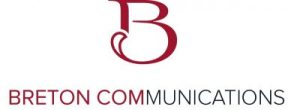By Brian P. Dunleavy

Jason Pearce, OD, enjoys playing golf and watching professional tournaments on television. Until recently, that passion had nothing to do with his optometry practice in Calgary. However, that all changed when he noticed ads for Transitions lenses on TV during Professional Golf Association (PGA) Tour events.
Transitions is actually one of several spectacle lens manufacturers marketing their products directly to consumers. Essilor, for example, has also been airing commercials on Canadian television for its Crizal anti-reflective coated lenses and Varilux progressives. And lens maker Nikon has advertised its lenses in the past.
So, what do these advertising efforts mean for optical dispensaries? Well, the short answer is, it depends.
According to Bruce Tobin, optician and owner of Optical Excellence inOttawa, not a single patient has come into his optical shop asking about a lens they saw advertised on television, although he has seen the commercials himself. That’s pretty amazing when you consider the broad-reaching nature of the Transitions and Essilor campaigns. For example, Transitions, which has been advertising its lenses to Canadian consumers since the early 2000s, has so far this year purchased advertising time on Canal Vie, Discovery, Global TV, HGTV, History, RDS, TSN, W Network and The Weather Network. They sponsored the Gala Artis Awards on TVA in May and the Toronto International Film Festival, which ended in September, in addition to airing spots during PGA Tour events. Meanwhile, Essilor’s 2011 campaign for Crizal, which ends in October, has included commercials on History, HGTV, National Geographic, CBC News Network, W Network, Bravo, Science Channel, Mystery, BBC Canada, Discovery, Slice, and The Weather Network.
“To me, it’s like advertising Celebrex,” notes Tobin. “A person can see one of those commercials and go in and ask their doctor about it. But, if the doctor doesn’t think the person should be taking Celebrex, he’ll say so, and maybe suggest another treatment. A person could come in mentioning a lens they saw advertised on TV, but if we don’t like that lens, if we don’t think it’s best for them, we wouldn’t sell it to them.”
Still, there may be an opportunity for Canadian opticians and optometrists here. Like advertisements for pharmaceutical products, most spectacle lens advertising advises consumers to “talk to [their] eyecare practitioner.” Whether ECPs know it or not, the commercials may indeed be driving traffic to their dispensaries.
“I think there is some benefit to brand awareness,” says Dr. Pearce. “The lens manufacturers are building awareness of their brands, but they are also building awareness of the eyeglass industry and helping to educate patients about the options available. When they come in, it helps start the conversation in the optical department.”
Tobin agrees, at least partly. “I’m not sure if advertising helps, but if it starts a conversation between me and my patients about lenses, then I guess that’s all right,” he says. “I run a high-end business. My patients trust me to recommend what’s best for them. If advertising causes them to go and do more research on lenses then so be it, but it won’t necessarily change what they wear.”
Both Dr. Pearce and Tobin agree that eyecare professionals should at least be prepared to answer questions from patients about television advertisements they’ve seen so that, as Dr. Pearce says, they appear “current” on new products and technology. Dr. Pearce also advises opticians and optometrists to prominently display any marketing or patient education materials for lens products advertised to consumers – that is, if they believe in the product themselves.
“I’m not going to fit my patients with a lens I don’t think is the best product for them, but I also want to be a good businessman. If it’s a good product and patients recognize the brand, then that’s a good thing for my practice,” notes Dr. Pearce. “I don’t think optometrists or opticians as professionals give patients enough credit. We should allow them to be part of the decision-making process. Lens fitting is a process that happens with the patient and the professional working together. The more educated a patient is, the more they will understand and appreciate the lens they end up wearing. If advertising helps that process in any way, that’s a good thing.”







